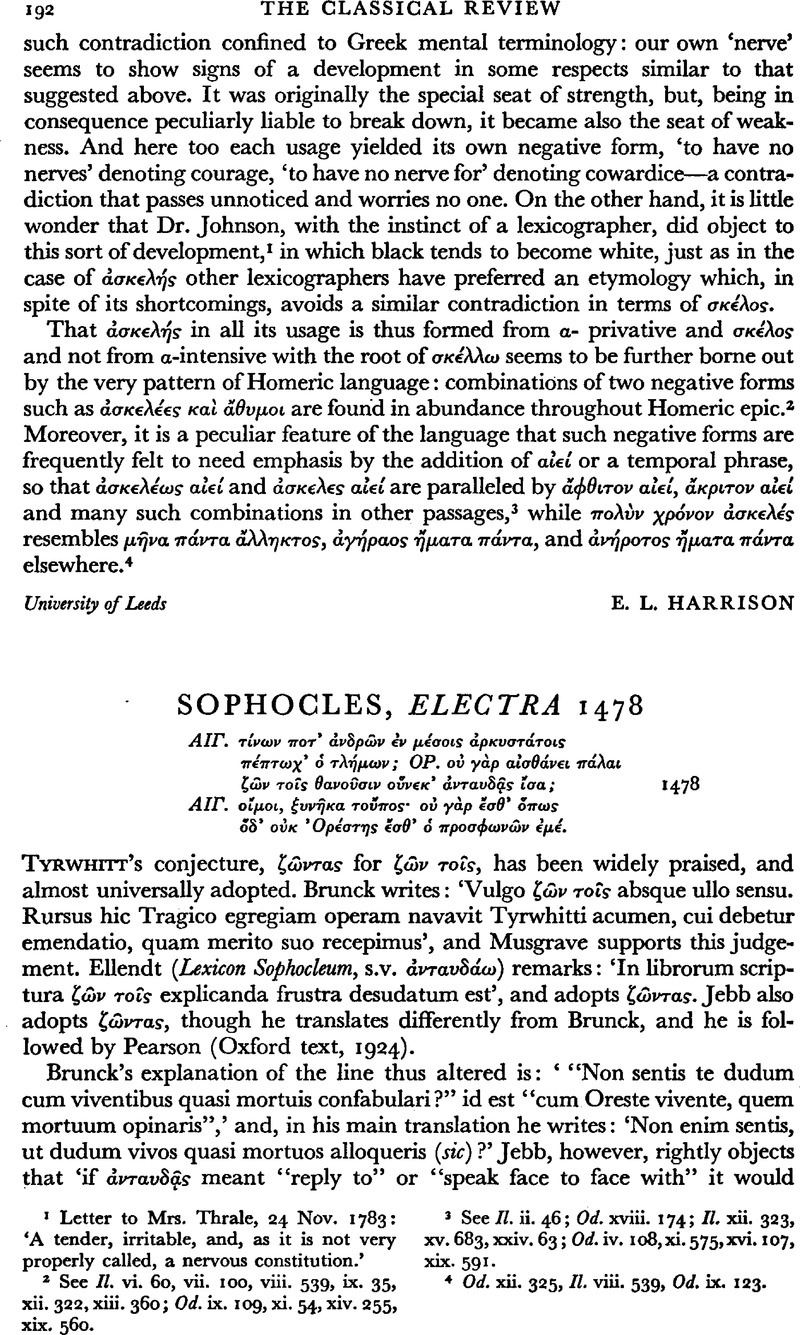No CrossRef data available.
Article contents
Sophocles, Electra 1478
Published online by Cambridge University Press: 13 February 2009
Abstract

- Type
- Review Article
- Information
- Copyright
- Copyright © The Classical Association 1954
References
page 192 note 1 Letter to Mrs. Thrale, 24 Nov.1783: 3 See ‘A tender, irritable, and, as it is not very properly called, a nervous constitution.’
page 192 note 2 See Il. vi. 60, vii. 100, viii. 539, ix. 35, xii. 322, xiii. 360; Od. ix. 109, xi. 54, xiv. 255, xix. 560.
page 192 note 3 See II. ii. 46; Od. xviii. 174; Il. xii. 323, xv. 683, xxiv. 63; Od. iv. 108, xi. 575, xvi. 107, xix. 591.
page 192 note 4 Od. xii. 325, Il. viii. 539, Od. ix. 123.
page 193 note 1 Kaibel quotes Soph. Ant. 1053: τόν ![]() , but this means ‘speaking ill of the seer’, not ‘to the seer’ (see Jebb)
, but this means ‘speaking ill of the seer’, not ‘to the seer’ (see Jebb)
page 193 note 1 The Aeschylus line can also mean that the living man is killing the dead: i.e. Orestes, who is after all alive, has killed Aegisthus, who is now dead, and will kill Clytemnestra, who is, therefore, as good as dead.




